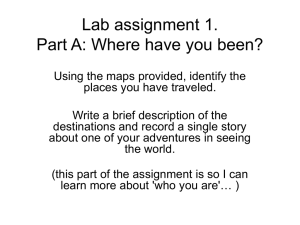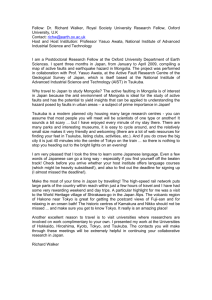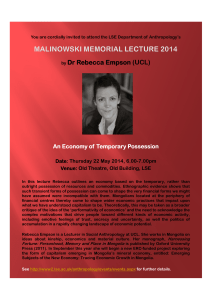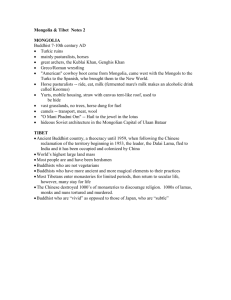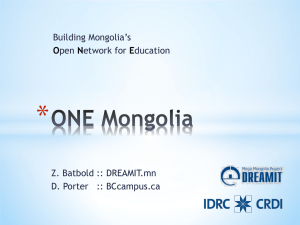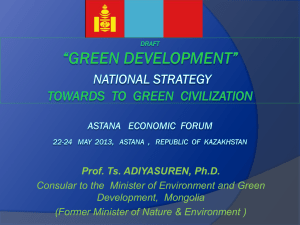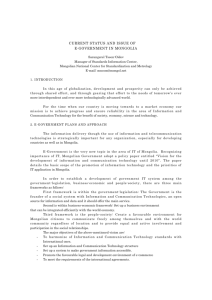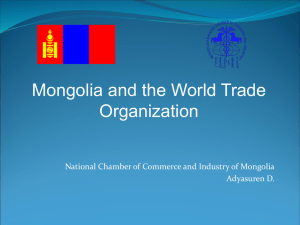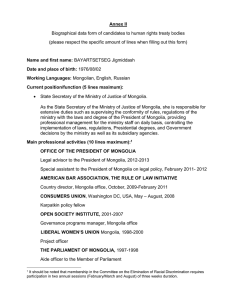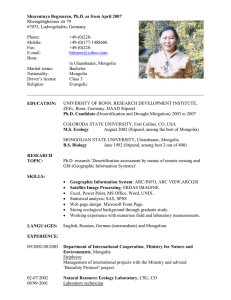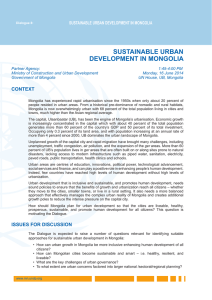(Wind Energy Conference November 2003)
advertisement
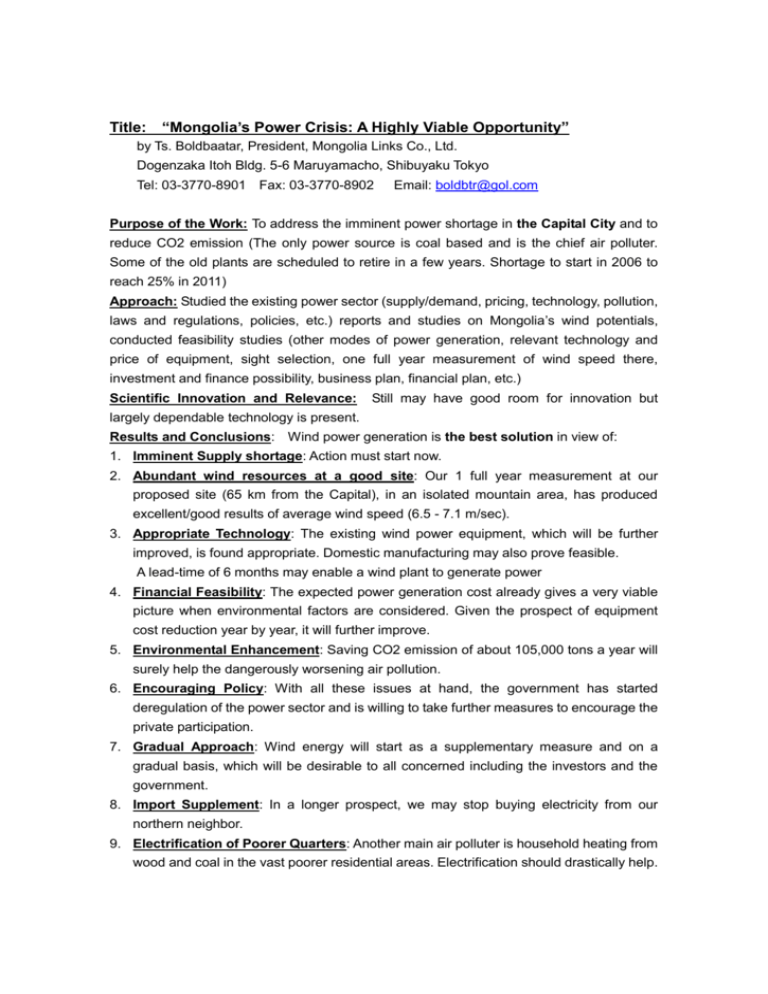
Title: “Mongolia’s Power Crisis: A Highly Viable Opportunity” by Ts. Boldbaatar, President, Mongolia Links Co., Ltd. Dogenzaka Itoh Bldg. 5-6 Maruyamacho, Shibuyaku Tokyo Tel: 03-3770-8901 Fax: 03-3770-8902 Email: boldbtr@gol.com Purpose of the Work: To address the imminent power shortage in the Capital City and to reduce CO2 emission (The only power source is coal based and is the chief air polluter. Some of the old plants are scheduled to retire in a few years. Shortage to start in 2006 to reach 25% in 2011) Approach: Studied the existing power sector (supply/demand, pricing, technology, pollution, laws and regulations, policies, etc.) reports and studies on Mongolia’s wind potentials, conducted feasibility studies (other modes of power generation, relevant technology and price of equipment, sight selection, one full year measurement of wind speed there, investment and finance possibility, business plan, financial plan, etc.) Scientific Innovation and Relevance: Still may have good room for innovation but largely dependable technology is present. Results and Conclusions: Wind power generation is the best solution in view of: 1. Imminent Supply shortage: Action must start now. 2. Abundant wind resources at a good site: Our 1 full year measurement at our proposed site (65 km from the Capital), in an isolated mountain area, has produced excellent/good results of average wind speed (6.5 - 7.1 m/sec). 3. Appropriate Technology: The existing wind power equipment, which will be further improved, is found appropriate. Domestic manufacturing may also prove feasible. A lead-time of 6 months may enable a wind plant to generate power 4. Financial Feasibility: The expected power generation cost already gives a very viable picture when environmental factors are considered. Given the prospect of equipment cost reduction year by year, it will further improve. 5. Environmental Enhancement: Saving CO2 emission of about 105,000 tons a year will surely help the dangerously worsening air pollution. 6. Encouraging Policy: With all these issues at hand, the government has started deregulation of the power sector and is willing to take further measures to encourage the private participation. 7. Gradual Approach: Wind energy will start as a supplementary measure and on a gradual basis, which will be desirable to all concerned including the investors and the government. 8. Import Supplement: In a longer prospect, we may stop buying electricity from our northern neighbor. 9. Electrification of Poorer Quarters: Another main air polluter is household heating from wood and coal in the vast poorer residential areas. Electrification should drastically help. Curriculum Vitae Current Occupation: Name: (Mr.) Ts. Boldbaatar President, Mongolia Links Co. Ltd., Tokyo Date and Place of Birth: January 1, 1959, Mongolia Educational Background: 1976-1981 Electrical Institute of Telecommunications in Leningrad, USSR Professional Career: 1981-1989 Engineer, Researcher, General Manager, Ministry of Communications, 1989-1993 First Deputy Director, General Director, Mongolian Telecom. Authority 1992-1993 General Director, MTC 1993-1994 Advisor to Prime Minister (Infrastructure Development Policy) 1994-1998 Commercial and Economic Counselor, Embassy of Mongolia in Tokyo 1998- President, Mongolia Links Co., Ltd., Tokyo Political and Social Activities 1990-1992 Member of Parliament of Mongolia 1993-1994 Member of the Board, Mongolian Association of Corporate Directors Married, three children Mongolia Links Co., Ltd. (Company Profile, as at April 1, 2003) Address: Dogenzaka Itoh Bldg., 5-6 Maruyamacho, Shibuya-Ku, Tokyo (Tel: 03-3770-8901, Fax: 03-3770-8902, Email: info@monlinks.com, WEB: www.mongolialinks.co.jp/ )
